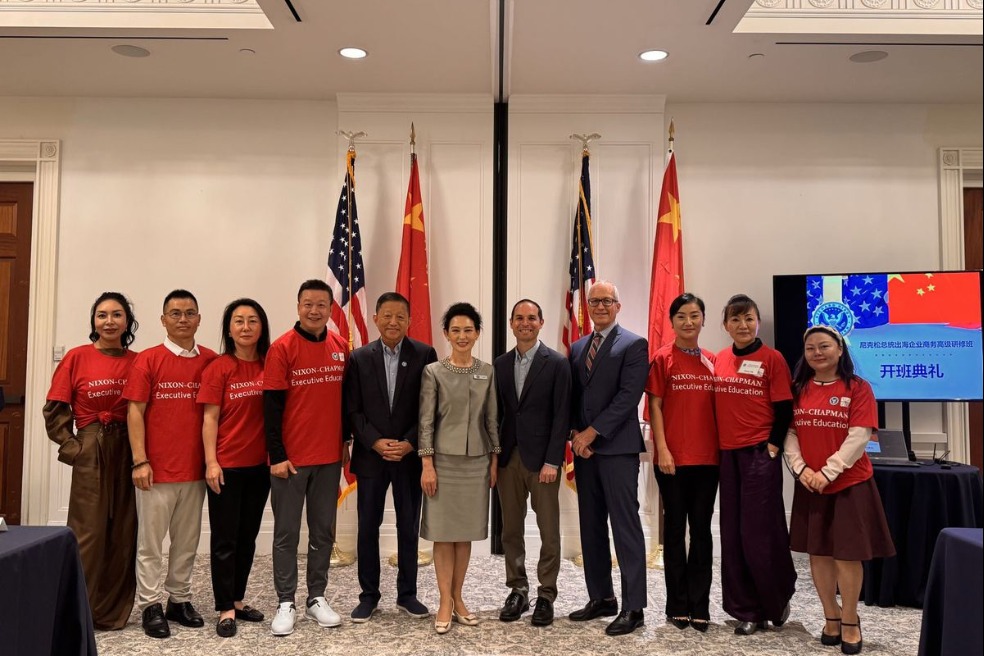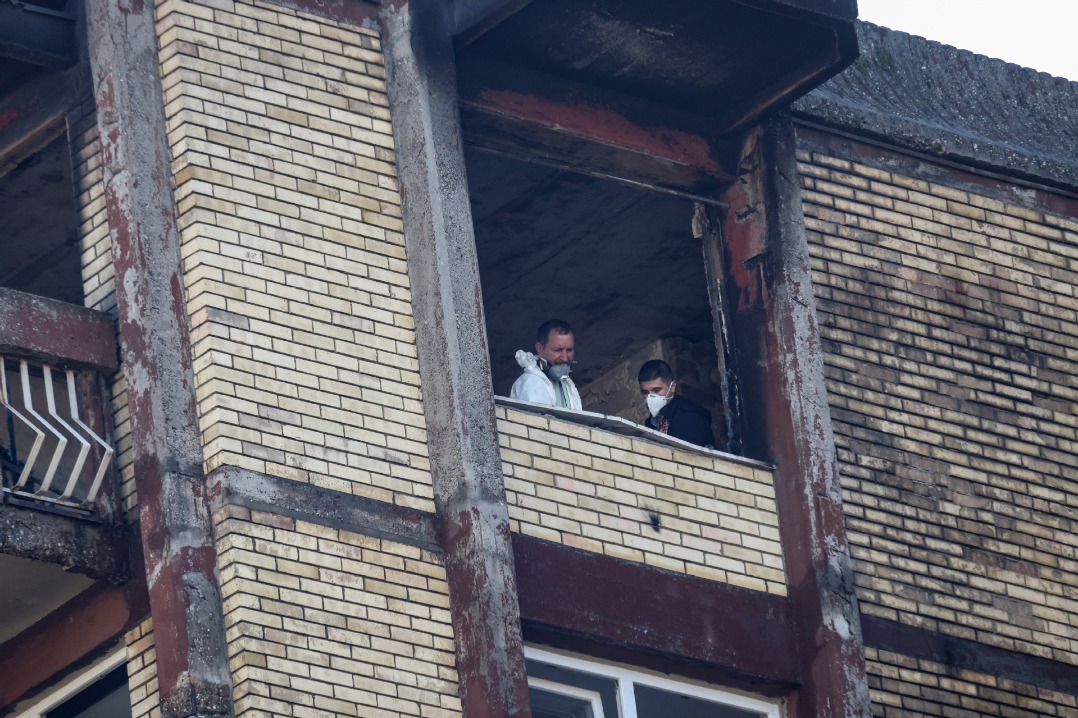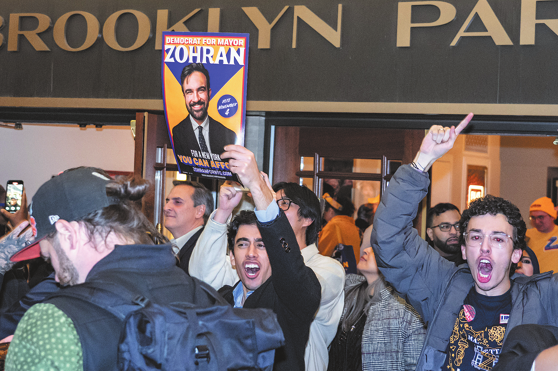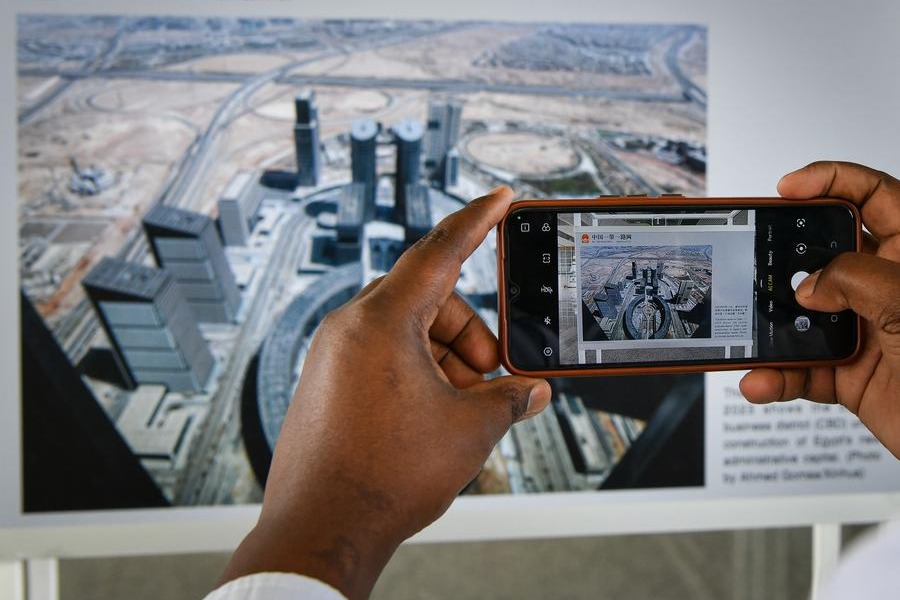Nixon Library revives spirit of dialogue
President's historic visit to Beijing in 1972 helped build strong US-China relationship


Inside the China Gallery of the Richard Nixon Presidential Library and Museum, one photograph draws the eye. It shows a moment that reshaped global history. On Feb 21, 1972, Air Force One touched down in Beijing and US president Richard Nixon stepped onto Chinese soil. After 25 years of estrangement, the leaders of two great nations reached out their hands.
"You have reached out your hand across the world's widest ocean to shake mine," Premier Zhou Enlai told Nixon. The US president later called the visit "the week that changed the world."
More than five decades later, amid shifting geopolitical winds, that memory still resonates as a reminder of what dialogue can achieve.
"There would be no US-China relations without President Nixon, and without that legacy, I myself may never have journeyed to this country," said Charles Zhang, treasurer of the Richard Nixon Foundation board of directors, who moved from China to the United States in the 1980s as ties normalized.
"We welcome every Chinese American, every visitor from China to come to the library," he said. "To appreciate history, and to help promote understanding between our two sides."
The Nixon Library, located in Yorba Linda, California, sits on land once owned by Nixon's family. The 9-acre campus includes the farmhouse where Nixon was born in 1913 — a national historic landmark that preserves his childhood roots. It is not only a museum, but also the presidential library and final resting place of the 37th US president and his wife, Pat Nixon.
Nixon's visit broke the decades-long diplomatic freeze and reshaped the global balance of power, laying the groundwork for a new era of US-China relations. Carrying forward that legacy, the Nixon Foundation and Chapman University this week launched the Nixon Library-Chapman Executive Education Program on US-China Business and Economics, a three-week program designed to help Chinese business leaders navigate US markets and foster constructive economic engagement.
Joe Lopez, acting president and CEO of the Nixon Foundation, said Nixon's belief in dialogue remains relevant today.
"President Nixon changed history more than 50 years ago," Lopez said. "He believed that peace begins when nations start talking to one another. Today, the United States and China are the two great powers in the world, and our future will depend on cooperation, much of which happens through business and entrepreneurship."
Standing in a museum that preserves the documents and rooms Nixon once walked through, Lopez encouraged the program participants to learn "with wisdom, courage and vision."
Participants, many of them Chinese entrepreneurs working in sectors such as electronics, textiles, food service and cosmetics, will study topics ranging from trade trends and real estate investment to the use of artificial intelligence in business growth. Professors will also guide them through legal safeguards and opportunities in US capital markets.
For Robert Koepp, a professor of business and economics at Chapman University, the program offers something foundational: mutual understanding.
"We're an open society, and many people from China are here doing their business," Koepp said. "But it's important to understand how the American system works. This program helps newcomers navigate opportunities, and it also helps us as the educators to understand their perspectives."
Koepp emphasized that conflict should always be the last resort in international relations.
"If communication is successful, people don't have to have conflict," he said. Even during periods of economic tension, he believes there remain "real opportunities to invest in America and develop business here."
As part of the program, participants will visit JD Logistics' US headquarters to gain firsthand exposure to how Chinese global supply chain networks operate in the US, providing a practical example of how cooperation continues to evolve in contemporary business settings.
For the program's organizers, economic exchange is not only commercial, but also about cultural and human.
"President Nixon opened the door for China to the world," said Jane Zhang, director of tourism, culture and education at the Nixon Library. "He acted with leadership, vision and courage. We feel an obligation to continue that legacy to promote peace and understanding among nations."
Zhang noted that trade is one of the most direct and effective forms of people-to-people connection.
"Politics is always an extension of people's needs, and trade is an extension of politics," she said. "Without trade, nothing happens. So promoting business exchange is where we begin."
renali@chinadailyusa.com































